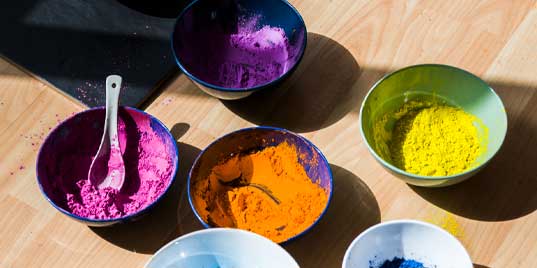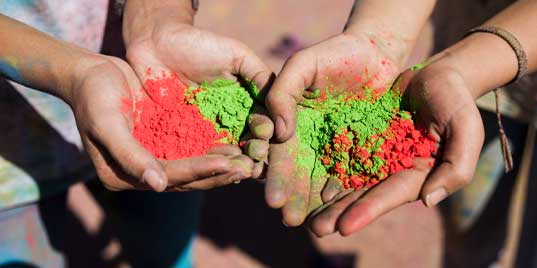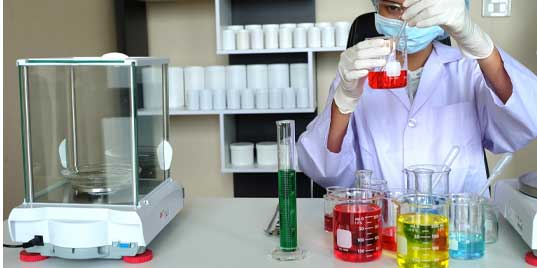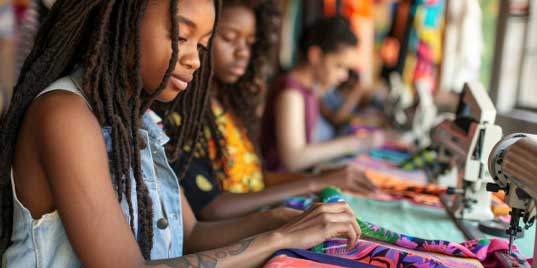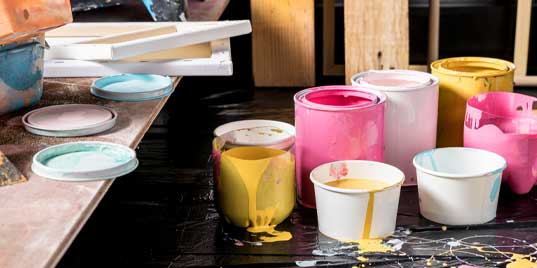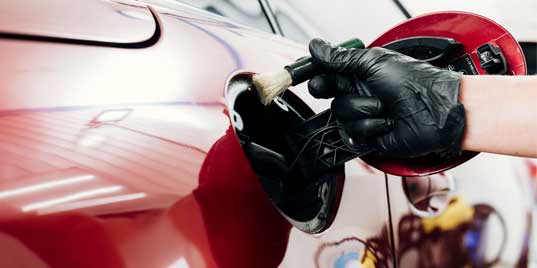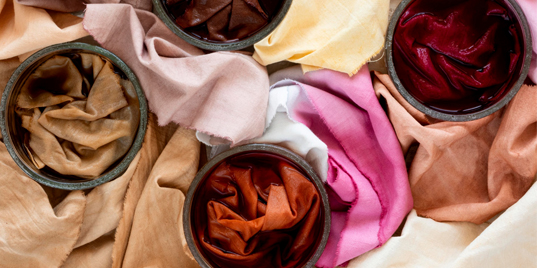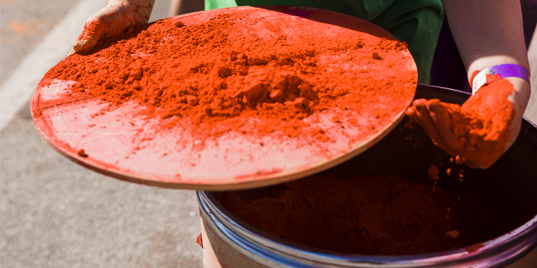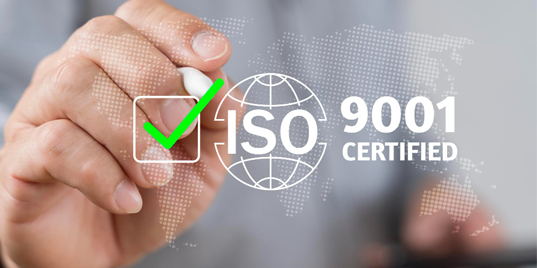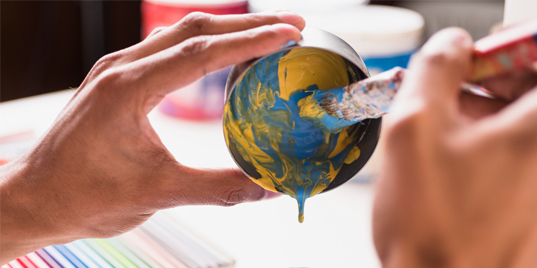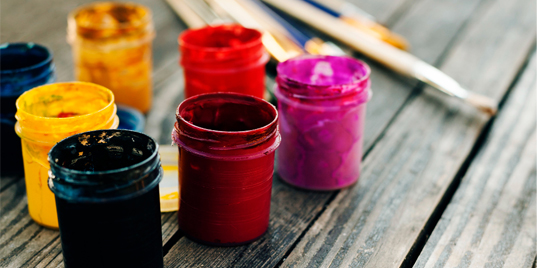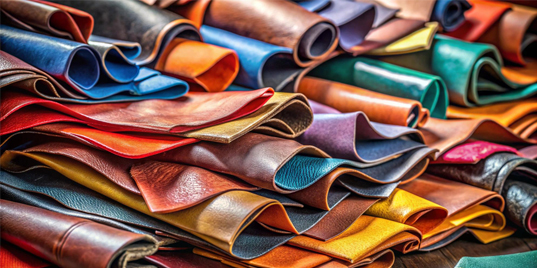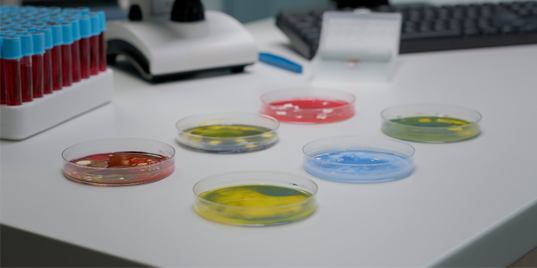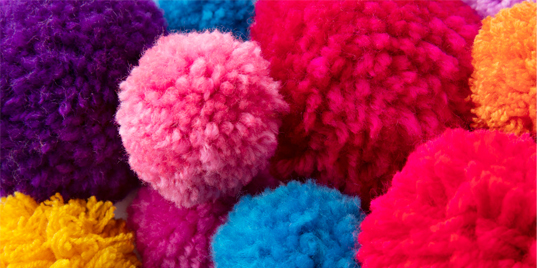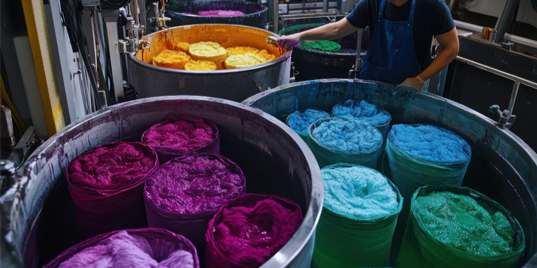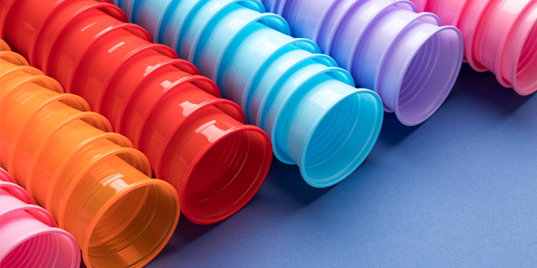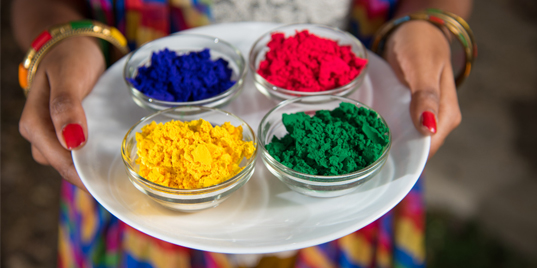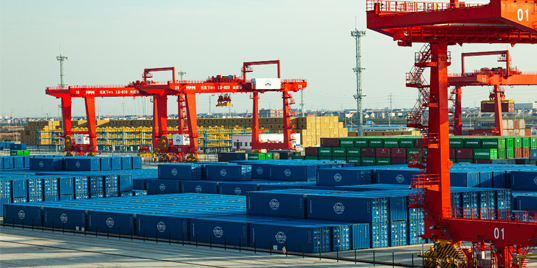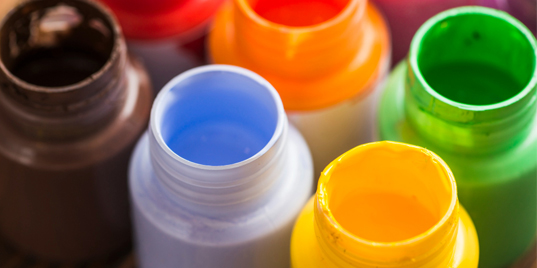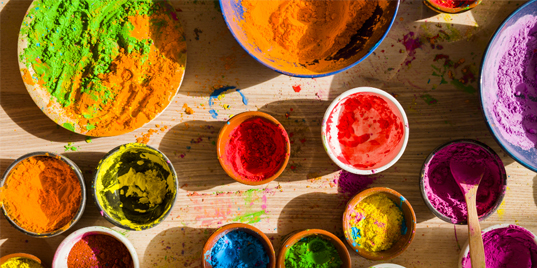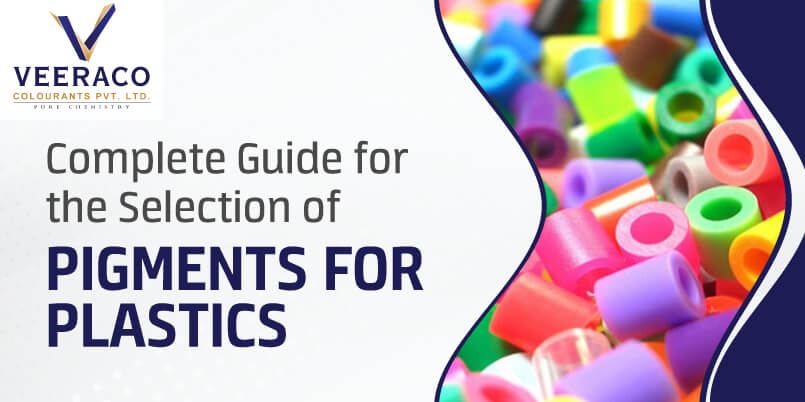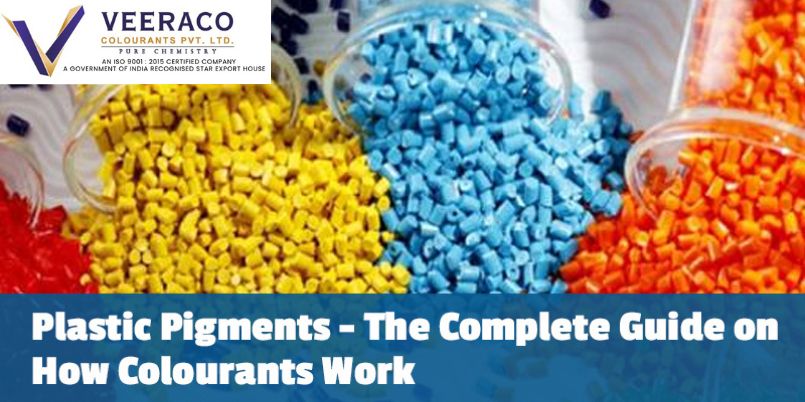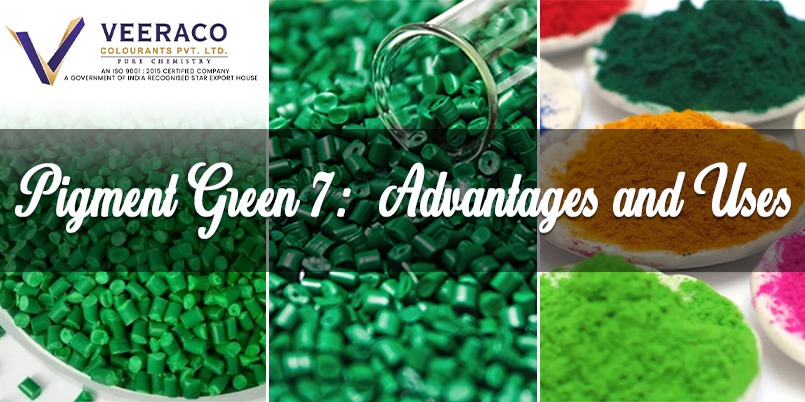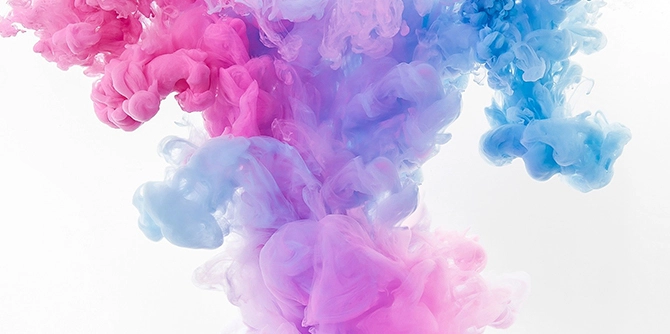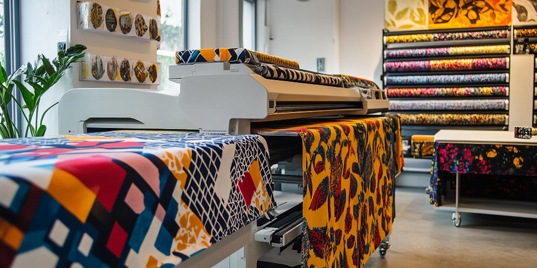
How to Choose the Best Textile Dyes Supplier in India: Expert Guide for
- Admin
- Aug 01, 2025
Complete Guide to Choosing the Right Textile Dyes Suppliers in India in 2025
India has emerged as a global powerhouse in textile dyes manufacturing, with a legacy spanning over eight decades. As businesses worldwide seek reliable partners for their dyeing needs, understanding how to select the right textile dyes suppliers in India becomes crucial for success. This comprehensive guide will walk you through everything you need to know about partnering with Indian dyes manufacturers.
Why India Leads Global Textile Dyes Manufacturing
The Indian textile dyes industry has grown exponentially over the past few decades, becoming one of the world's largest suppliers of quality dyes and pigments. With a perfect blend of traditional expertise and modern technology, Indian manufacturers have carved a niche in the global market.
Several factors contribute to India's leadership position in textile dyes manufacturing. The country boasts state-of-the-art production facilities, skilled workforce, and access to raw materials. Additionally, Indian manufacturers have consistently invested in research and development, enabling them to produce innovative dye formulations that meet international standards.
The textile industry in India processes over 20 million tons of fabric annually, creating a massive domestic market that keeps manufacturers sharp and competitive. This domestic strength translates into export excellence, making Indian suppliers the preferred choice for businesses across continents.
Understanding Different Types of Textile Dyes
Before selecting a supplier, it's essential to understand the various types of textile dyes available. Each type serves specific purposes and works best with particular fabric types.
- Reactive Dyes: Reactive dyes form covalent bonds with fiber molecules, making them ideal for cotton and other cellulosic fibers. These dyes offer excellent wash fastness and vibrant colors, making them popular among textile manufacturers. Leading Indian suppliers produce high-quality reactive dyes that meet international color fastness standards.
- Vat Dyes: Vat dyes are water-insoluble dyes that become soluble in alkaline conditions. They're particularly suitable for cotton textiles and offer exceptional light and wash fastness. Many Indian manufacturers specialize in vat dyes for textile mills, ensuring consistent quality for denim and other heavy-duty fabrics.
- Disperse Dyes: Disperse dyes are primarily used for polyester and other synthetic fibers. Indian manufacturers have developed specialized formulations that provide excellent sublimation fastness and bright shades, crucial for modern synthetic textiles.
- Acid Dyes: Acid dyes work best with protein fibers like wool, silk, and nylon. Indian manufacturers produce a wide range of acid dyes that offer brilliant colors and good fastness properties, making them ideal for premium textile applications.
- Direct Dyes: Direct dyes are water-soluble and can be applied directly to cellulosic fibers. While they may not offer the same fastness as reactive dyes, they're cost-effective for certain applications, and Indian suppliers provide economical options without compromising quality.
Key Qualities to Look for in Textile Dyes Suppliers
Choosing the right supplier involves evaluating several critical factors that directly impact your production quality and business success.
- Quality Certifications and Standards: ISO certification stands as the hallmark of quality in dyes manufacturing. Reputable textile dyes suppliers in India hold ISO 9001 and ISO 2015 certifications, demonstrating their commitment to quality management systems. These certifications ensure consistent product quality, proper documentation, and adherence to international standards. At Veeraco, with over 80 years of experience in the colour industry, we maintain strict quality control measures backed by our ISO certifications. Our quality assurance processes include rigorous testing at multiple stages of production, ensuring that every batch meets or exceeds customer expectations.
- Production Capacity and Consistency: A reliable supplier must demonstrate adequate production capacity to meet your demands consistently. Evaluate their manufacturing infrastructure, including production lines, storage facilities, and quality control laboratories. Established manufacturers typically maintain buffer stocks to ensure uninterrupted supply even during peak demand periods. Consistency in color matching is particularly crucial in textile manufacturing. Top suppliers invest in spectrophotometers and automated color dispensing systems to maintain batch-to-batch consistency, which is vital for maintaining your brand's quality standards.
- Technical Support and R&D Capabilities: The best textile dyes suppliers don't just sell products; they partner with you to solve challenges. Look for manufacturers with dedicated technical teams who can provide application support, troubleshooting assistance, and custom formulation development. Companies with strong R&D departments can develop specialized dye formulations tailored to your specific requirements. This capability becomes invaluable when you need unique colors, improved fastness properties, or eco-friendly alternatives.
- Competitive Pricing Without Compromising Quality: While cost is an important factor, the cheapest option isn't always the best value. Reliable dyes suppliers in India offer competitive pricing that reflects the true value of quality products. Consider the total cost of ownership, including factors like yield, consistency, and technical support, rather than just the per-kilogram price.
How Veeraco Stands Out Among Textile Dyes Suppliers in India
As an ISO-certified company with over 80 years of heritage, Veeraco Colourants has established itself as a trusted name among textile dyes suppliers in India. Our success stems from our unwavering commitment to customer satisfaction and continuous innovation.
We maintain a diverse portfolio of textile dyes, including reactive dyes, vat dyes, disperse dyes, and specialty formulations. Our manufacturing facilities incorporate the latest technology while preserving the expertise gained through decades of experience.
Our customer-centric approach ensures that we don't just supply dyes; we provide complete solutions. From initial consultation to post-sales support, our technical team works closely with clients to optimize their dyeing processes and achieve desired results consistently.
Industries We Serve: From Cotton to Synthetic Fabrics
Textile dyes find applications across various industries and fabric types. Understanding these applications helps in selecting the right supplier who specializes in your specific needs.
- Apparel & Fashion: Cotton, denim, sportswear, and blended fabrics.
- Home Textiles: Upholstery, bedding, and decorative fabrics.
- Denim & Casual Wear: Specialized vat and sulphur dyes for durable shades.
- Technical Textiles: Automotive, medical, and industrial applications.
Understanding Quality Certifications That Matter
Certifications serve as third-party validation of a manufacturer's capabilities and commitment to quality. ISO 9001 certification demonstrates that a company maintains a robust quality management system, while ISO 2015 indicates compliance with the latest standards. Beyond ISO certifications, look for manufacturers who comply with international standards like REACH and Oeko-Tex, particularly if you're exporting to European markets. These certifications ensure that the dyes meet stringent environmental and safety requirements. Some suppliers also maintain certifications for specific applications, such as food-contact compliance for packaging materials or medical-grade certifications for healthcare textiles. Verify that your supplier holds relevant certifications for your intended applications.
Comparing Textile Dyes Suppliers: Price vs. Quality
The textile dyes market in India offers options across various price points. Understanding the relationship between price and quality helps in making informed decisions. Premium suppliers invest heavily in quality raw materials, advanced manufacturing processes, and rigorous testing. While their products may cost slightly more, they offer better consistency, higher yield, and fewer production problems. Mid-tier suppliers balance quality and cost, making them suitable for standard applications. Budget suppliers may offer attractive prices, but inconsistency and quality issues can lead to higher long-term costs.
Logistics and Supply Chain Considerations
Efficient logistics play a crucial role in maintaining uninterrupted production. Top suppliers maintain strategic warehouses across major manufacturing hubs, ensuring quick delivery even for urgent orders. They also offer flexible packaging options and possess strong export capabilities to simplify global procurement.
Sustainable and Eco-Friendly Dyeing Solutions
Sustainability has become a critical consideration in textile manufacturing. Forward-thinking dyes suppliers in India are developing eco-friendly formulations that reduce environmental impact without compromising performance. Look for manufacturers offering low-salt reactive dyes, metal-free acid dyes, and formulations requiring lower water consumption. Some suppliers have also developed biodegradable dyes and natural alternatives for eco-conscious brands.
Building Long-Term Partnerships with Suppliers
The best supplier relationships extend beyond transactions. Look for partners who demonstrate commitment to your long-term success through consistent support, transparent communication, and collaborative problem-solving. Establish clear communication channels and regular performance reviews to ensure quality and reliability.
FAQs About Textile Dyes Suppliers in India
- What minimum order quantity do textile dyes suppliers in India typically require? MOQ varies by supplier and product type — from 25 kg for specialty dyes to 500 kg for standard products.
- How long does delivery typically take? Domestic delivery takes 3–7 days; international shipping ranges from 5–45 days depending on mode and destination.
- Can Indian suppliers provide custom color formulations? Yes, most established textile dyes suppliers in India offer R&D-based custom shade development.
- What payment terms do suppliers typically offer? Payment terms vary — new customers may work on advance or LC, while regular clients often receive 30–90 days credit.
- How do I verify dye quality? Request samples, technical data sheets, and conduct production trials before placing bulk orders.
Conclusion: Making the Right Choice
Selecting the right textile dyes supplier in India requires careful evaluation of quality, consistency, technical support, and long-term partnership potential. With over 80 years of experience, ISO certifications, and a customer-first approach, Veeraco Colourants exemplifies the qualities you should seek in a textile dyes supplier.
Whether you're manufacturing cotton apparel, synthetic sportswear, or specialized technical textiles, partnering with a reliable supplier ensures consistent quality, timely delivery, and the technical support necessary for success in today's competitive market.
Ready to partner with one of India's most trusted textile dyes suppliers? Contact Veeraco today to discuss your requirements and discover how our expertise can enhance your textile production.

